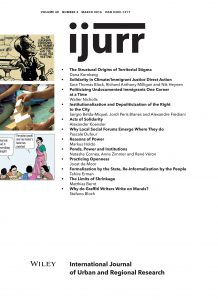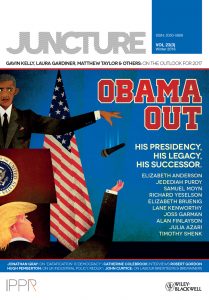prosumers of the world unite
 Lately, we have been doing lots of work, for others. For free.
Lately, we have been doing lots of work, for others. For free.
Millions of users of sites like Facebook and MySpace are clicking away at their profiles, adding detailed information about themselves and others. “We” are uploading content to sites like Flickr, YouTube, the microblogging service Twitter and many others, and our labor creates vast databases about ourselves –what I previously described as a sort of mass exhibitionism.
Facebook’s profit model is built upon an ownership of its user’s labor, specifically, the intimate detail of our lives and self-presentations. This is an example a larger trend of “prosumption,” that is, the simultaneous role of being a producer of what one consumes. In the material world we are doing this more often by scanning and bagging our own groceries, checking ourselves onto planes and into hotels, etc.
The websites mentioned above are part of the user-generated and social turn the Internet has taken in the last few years –what has come to be known as Web 2.0. And prosumption generally, and especially on Web 2.0, is the mechanism by which we become unpaid workers (“crowd sourcing”), producing valuable information for the benefit of businesses. This is the almost endlessly efficient business model of Web 2.0 capitalism.
Karl Marx argued for taking control of the means of production, and on Web 2.0, to some degree, we have. But what remains in the hands of the few, the businesses, is the profit-potential. Facebook’s reach is ever-growing and the company is valued at $15 billion dollars as of 2007, precisely due to the data that users donate to the site.
Perhaps many do not mind giving away their labor because they enjoy the services provided, such as the richly social Facebook platform. However, we should also ask why the personal data of ourselves, that we are producing, does not belong to us? Given the successes of non-profit/open source software and applications (e.g., Linux, Firefox, etc), shouldn’t we be calling for a non-profit/open source social networking platform (i.e., an open source Facebook-like platform) where businesses do not own the highly personal data about ourselves and our socializing? What other ways can we think of that removes the link between our data (and labor) and corporate profit? ~nathan
![]() Read More: Facebook Aims to Extend Its Reach Across the Web
Read More: Facebook Aims to Extend Its Reach Across the Web
Social Movements and New Media




1756-2589/asset/NCFR_RGB_small_file.jpg?v=1&s=0570a4c814cd63cfaec3c1e57a93f3eed5886c15)
It seems to me that the future popularity of Facebook et al will fade in step with the downturn in the global economy. The narcissistic, egomaniacal self cannot flaunt its self indulgent psyche as the house of cards collapses around it. Logging off is the new staying in.
http://www.okathleen.wordpress.com
I think the business model of Facebook has yet to settle down. It may mature, or it may enter a decline stage. Facebook’s consumer-created database gives almost unlimited potential which businesses find impossible to ignore, and thus money is going into experimenting with ways to harness this potential for now. But if the mood changes, if the consensus grows that there isn’t much profit to be made, then perhaps the corporate factor and Facebook’s staggering valuation will fall away from the site. The NY Times ran an article on Proctor & Gamble’s experiences with Facebook here: http://www.nytimes.com/2008/12/14/business/media/14digi.html?ref=media
There’s also the issue of ad-blockers. I use them on Firefox and it’s cleared my Facebook experience and brought it back to the social-networking core. I don’t see why this aspect of Facebook should diminish with the economic downturn: people will still be organising events online, posting photos and playing games. Facebook is useful in many ways people have come to find almost essential.
There are many ways to go about using Facebook, even as a company. A distinction can be drawn between simply developing new ways of advertising products to purchase, as Proctor & Gamble did, and using the platform to create a new type of academic social network, which is voluntary and non-obtrusive, but which may tie in with corporate objectives.
For example, there is an event page for Blackwell Compass’s Interdisciplinary Virtual Conference in October as advertised on this blog:
http://www.facebook.com/home.php?#/event.php?sid=eddac05519167848f8b5a7eddf3ceeb2&eid=50572191153
It seems that this case really challenges the meaning of the phrase “ownership of the means of production.” It also challenges some of these terms individually: ownership, means, production. Very interesting analysis of Marx and Web 2.0!
Keri